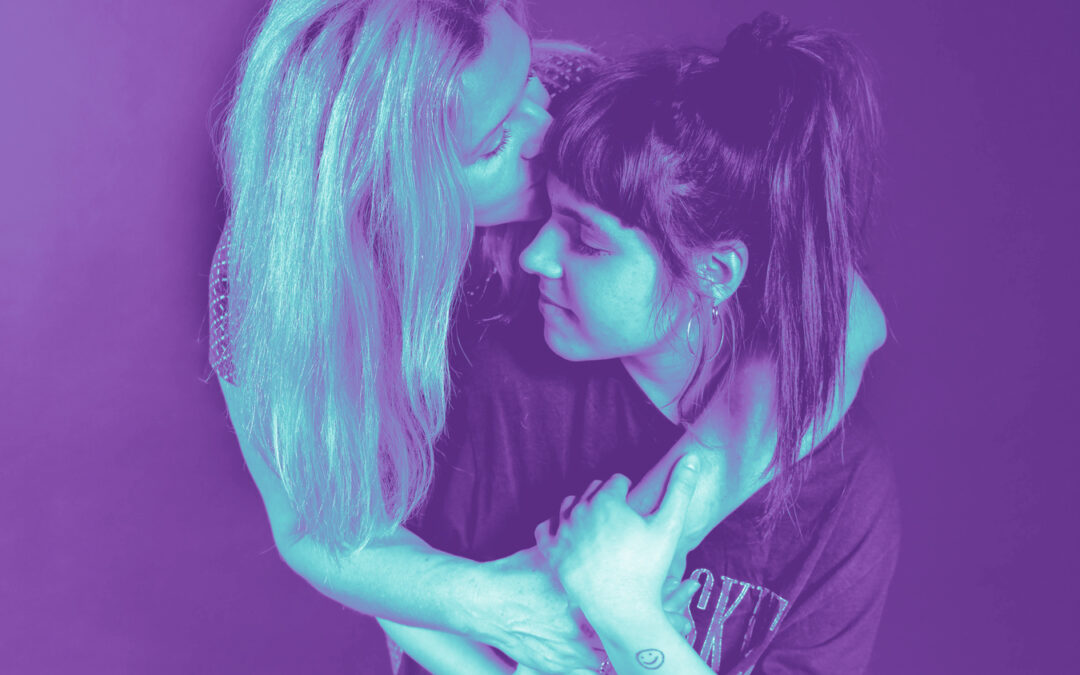Co-Dependence and Enabling Drug Addiction
Drug addiction is not just a disease that impacts the addict’s life, health and daily routine. It’s also a disease that affects the people who love the addict, such as family members and close friends. The cost of drug addiction to the nation, in lost productivity, health care and crime is more than $270 billion per year. If you have a person in your life who is struggling with addiction, it’s confusing and scary. Most people don’t know what to do or how to help their loved one. Sometimes, friends and family members get caught up in their loved one’s problems and end up enabling drug addiction.
Enabling behaviors often happen in relationships where there is a pattern of co-dependency. Spouses, children, parents, siblings and friends of addicts may not even realize they have a co-dependent relationship with their loved one and may inadvertently be enabling drug addiction. It’s important to recognize

these behaviors and to get a loved one the help that is needed to conquer addiction. It’s also vital for family and friends to recognize their own needs and to not put the addict’s wishes in front of their own.
Recognizing the Signs of Co-Dependency
The friends and family members of an addict should be aware of the signs of a co-dependent relationship. Co-dependent relationships, even outside of drug and alcohol addiction, can be damaging to both people involved. In this type of dynamic, there is an imbalance of power and needs. Co-dependency is when one person in the relationship has extreme needs, such as emotional or physical, and the other person sacrifices their own mental health to attend to these needs.
Being part of a relationship with a drug or alcohol addict can sometimes lead to a co-dependent dynamic, where the addict takes all of the emotional and physical support from the other person. The non-addict partner may start to experience low self-esteem, obsessive behavior about the relationship, a lack of boundaries and other destructive behaviors. A common destructive behavior in a co-dependent dynamic is when the non-addict partner, friend or family member starts enabling drug addiction and making it more difficult for the addict to get help.
Understand the Difference Between Enabling and Helping
The problem is that well-meaning partners, friends and family members want to do everything in their power to help their loved one struggling with addiction. They want to take away their pain and make them feel better. They want to help them get their life together and be a productive citizen. Often, these behaviors are not actually helping. They are enabling drug addiction and furthering the cycle of drug and alcohol abuse.
Enabling drug addiction is often when people do things for the addict, protect them from consequences or make it easier for them to use. In contrast, helping behaviors are strategies to get a loved one to treatment. Helping means offering support to a friend or family member during a difficult time. It also means being honest and recognizing the signs of addiction and using this knowledge to save their life.
Avoid Giving Money to an Addict
One of the most common ways friends, partners and family members of addicts end up enabling drug addiction is by giving them money. Addicts may present compelling stories about needing money to those close to them. They may beg, cry and plead their case about needing money for rent, food or other essentials.
The reality is that most of the time when addicts get money from friends and family members, they will use it to buy drugs or alcohol. Paying for an addict’s car, cell phone or other bills are also ways that family or friends could potentially be enabling drug addiction. Instead of giving money to an addict, it’s better to help by offering meals, grocery items or food from a restaurant.
Let the Addict Experience Consequences
Another common enabling behavior that friends and family members of addicts demonstrate is trying to take away consequences. Someone struggling with an addiction may often be in financial or legal trouble. It’s typical for addicts to lose their jobs, get into debt or even get arrested from issues related to drug or alcohol abuse.
The key to avoiding being an enabler and pushing your loved one further down the addiction cycle is to know when to say no. Don’t make excuses and try to get your loved one’s job back. It’s not your fight. Avoid paying off their debt or tax responsibilities because this only keeps them from facing their own problems. Finally, friends and family members should also avoid bailing out loved ones from jail. Even though it seems like a helpful act, it takes away any consequences from the addict and makes it easier for them to avoid all responsibility.
Don’t Be in Denial or Minimize the Problem
Family members, partners and friends should also be careful of signs of denial or minimizing the addiction problem. It’s unfortunately common for those closest to an addict to ignore the signs of addiction at the beginning of this terrible problem. Being in denial and not even confronting the suspected addict makes it easier for drug and alcohol abuse to continue.
Minimizing the behavior is another big problem that faces many families of addicts. Partners, friends and close family members may minimize the issue by thinking that casual drug or alcohol use isn’t really an addiction. They may think that drug and alcohol use isn’t an issue if their loved one doesn’t fit the stereotype of a typical addict. They may also worry about what other people in their social circle think and ignore what is really happening. All of this leads to even more addictive behaviors.
Set Boundaries
Many people close to an addict are so used to giving all of their emotional and physical support to this other person. The co-dependent aspect of this relationship causes otherwise healthy individuals to neglect their own emotional needs and forget about their own boundaries. To stay healthy, throughout this journey to help a loved one fighting an addiction, it’s important to set boundaries.
Setting boundaries can be daunting at first, but it helps people who care about addicts avoid going into their own downward spiral. These caring individuals should start by practicing some own self-care, such as doing yoga, getting a massage and other activities that focus on calm and relaxation. Next, it’s essential for them to start saying no to some requests from the addict in their lives that are enabling drug addiction. Getting support from a therapist or another professional is also a great idea.
Support Steps to Recovery
The final thing to understand to help someone avoid the co-dependency trap and stop the enabling behaviors with an addict is how to get closer to recovery. First of all, the choice to enter treatment is solely on the addict. If a person struggling with drug or alcohol addiction refuses to seek help, it’s impossible to force the issue. Today, nearly 46% of addicts are in recovery.
Once a loved one is ready to get treatment for addiction, family and friends can help by offering support. Phone calls, letters and a listening ear are all helpful ways to support someone going through recovery.
The journey to recovery is often difficult for not just addicts, but those who support them. People close to a person struggling with an addiction can stop the cycle of co-dependent behaviors that enable drug addiction and keep an addict using. Contact Clean Recovery Centers for more information about services to help stop enabling drug addiction.
Sources:


